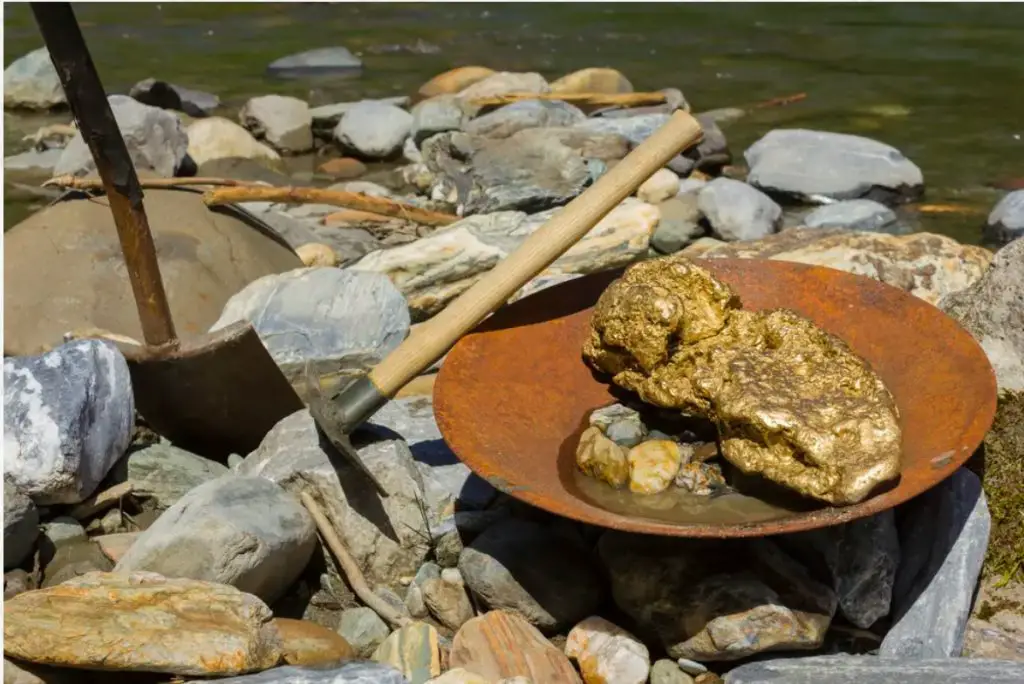The Democratic Republic of Congo (DRC) is in the top ten list of the world’s wealthiest nations when it comes to natural resources.
Mining is one of the most significant export income sources for the DRC which had over US$24 trillion in unexploited mineral deposits as of 2009.
In a 2017 study by the United Nations Environment Programme (UNEP), the DRC hosts half of Africa‘s forests and water resources in addition to the trillion-dollar mineral reserves which include the biggest coltan reserve in the world. The country also has significant cobalt quantities, gold, diamond, tantalum, tin and copper reserves.
Read: Illicit financial flows surpass Africa’s total external debt, aid
The country could become a powerhouse of African development, according to UNEP, provided multiple pressures on its natural resources are addressed.
And even with such realisation, gold mining continues in the country with traders and exporters who are legally registered in the DRC, Rwanda- and Uganda operating without apparent fear of sanction. This is even after being publicly named by the United Nations and international organizations year after year as contributing to the illicit trade of artisanal DRC gold.
In its latest report, “The Intermediaries: Traders Who Threaten the Democratic Republic of Congo’s Efforts for Conflict-Free Gold,” IMPACT documents how registered traders and exporters are providing a sheen of legality by declaring a small percentage of their gold exports while pocketing massive profits from the illicit trade. The report shows that these traders thwart attempts to disrupt their scheme by reconfiguring their operations across the region when necessary or by creating phantom entities.
IMPACT notes that this, then, means that gold smuggled out of DRC and flowing onto the legal international gold market –into consumer products—is potentially tied to criminality, money laundering, armed groups and human rights abuses.
“Much effort has been made to strengthen responsible artisanal gold trade in the DRC, but as long as these shady intermediaries between the miners and the market operate with impunity, all such efforts are futile,” said Joanne Lebert, IMPACT’s Executive Director.
To bring sanity in to the gold mining sector, the first conflict-free, legal, and traceable artisanal gold to reach the international market from the DRC was announced in 2017. The milestone marked a turning point in national, regional, and global efforts to develop and implement a traceability and due diligence system for one of the DRC’s most abundant and conflict-prone natural resources.
The report notes that for increasingly conscientious international markets to be interested in sourcing artisanal gold from the DRC– the sector must channel its supply through the legal market, and provide evidence of due diligence.
Read: Canadian mining firm East African metals offer Ethiopian mine to China
“However, efforts to move responsible artisanal gold production through legal channels are in direct competition with the illicit gold trade. Even under a brighter spotlight, the illicit gold trade in the DRC continues virtually unabated,” highlights the report.
The illicit gold trade is not happening unnoticed since the United Nations Group of Experts on the DRC (UN Group of Experts) says that most of the country’s gold is being smuggled out of the country. Estimates from 2013 by the Group show that as much as 98 per cent of the country’s gold left the country undeclared. With the chaos in the sector, reports show that DRC-based armed groups and criminal networks continually profit from the mineral.
IMPACT has found that despite efforts by the DRC government and international actors to introduce traceability and due diligence for artisanal gold supply chains in DRC, the illicit trade appears to be booming.
Only a fraction of gold production is exported legally, denying the DRC government revenues from the under-declared quantities since all duties and taxes are not paid to authorities.
As it is, gold prices have hit record highs this year with predictions that the precious metal would reach the critical US$1,800 mark as global economies slip deeper into recession. According to Mining Africa, the current extraordinary upsurge in gold prices is influenced by an interplay of factors including geo-political tensions, trade strife and Covid-19 pandemic-related disruptions.
“As Covid-19 continues to push international markets into one of the harshest declines in recent history, a general sense of insecurity prevails. This, and the ongoing trade tensions between the United States and China, are further contributing to these record-setting highs,” notes Mining Africa.
The upward trend witnessed in gold prices began a few years ago and the instability around the world just intensified it. Gold prices have been rallying since the final quarter of 2018 with more gains being recorded in the longest run since the financial crisis in 2007/8.
For the DRC, its people remain among the world’s poorest and to make it worse, many of the miners are children. These young miners are risking their lives to try and save their families from poverty.
